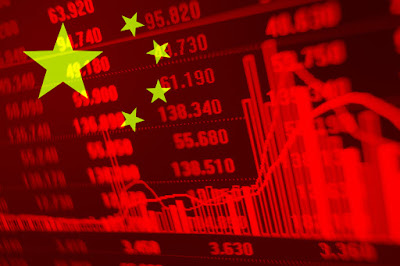China Turns the Screw on Domestic Credit Rating Agencies
We saw at the end of 2020 that Chinese credit rating agencies were coming in for unprecedented criticism in the light of a number of high-profile corporate defaults. With the entrance of the international credit rating agencies into the Chinese marketplace, the pressure was already ramped up against the domestic players. However, as the corporate bond arena within China continues to suffer, now the dominant Chinese regulator is taking its turn in, potentially, disembowelling the domestic rating space.
On Friday, the China Securities Regulation Commission (CSRC)
published some revised rules concerning the registration of corporate bonds.
The original rules stated that those wanting to issue bonds for investment had
to demonstrate the riskiness of those bonds by gaining a credit rating from a
domestic supplier. Now
however, the CSRC has done away with this requirement, instead stating that, as
part of the registration requirements, there would now be minimal thresholds
that a company must meet in order to market its bonds; examples include an
issuer with outstanding defaulted debt being unable to market their bonds,
those with three-year average profits that are not enough to service on annual
interest payment, and also a company cannot subscribe to their own bonds. Furthermore,
the bond issuance must not lead to any increase in local government debt. The
National Association of Financial Market Institutional Investors (NAFMII) has
also altered its rules in deciding to allow ‘corporate
issuers to issue unrated bonds in the interbank market’.
The Chinese State apparatus has clearly sought to act in the
face of mounting
issues with its debt arena. Only yesterday was it announced that a Chinese
developer, backed by the country’s largest insurance group, has
defaulted on a $530m bond. This is merely the latest in a string of
corporate defaults. However, for the domestic credit rating agencies, this is potentially
a deathblow to their industry. The inclusion of the international agencies was
bad enough, but now the domestic market has been told that they do not have to use
the ratings of the domestic agencies. Whilst the Chinese market is very
different to the Western markets, it will provide us with an interesting
experiment because, when the Western lawmakers told the markets that they did
not have to use the credit rating agencies anymore (after the Financial Crisis),
the market responded by using them more. In the Chinese experience, I predict
that the outcome will be very different indeed. The only thing that could save
the domestic agencies would be their perceived independence – but they do not
have any. They have long since been regarded as a mouthpiece for the State, and
that allegiance will now be its undoing; the marketplace simply has no use for what
the industry offers anymore. Furthermore, if this plays out as I predict, the
agencies will not get the opportunity to build up that perceived independence.
It seems as if the State has used the industry for certain purposes, but now
the economic environment has forced it to cast the industry aside. It may well
prove useful to the State in the short-term, as it seeks to navigate the
corporate crisis it is slowly being exposed to, but in the long-term it is
without doubt that the international rating agencies will be licking their lips
at the recent change in the securities law. It fundamentally removes the
established domestic industry from the equation, and provides for freedom for
Chinese issuers. That freedom is still, and fundamentally as I have argued on many
occasions, attached to the concept of signalling – the issuers will
still have to signal to their investors, and the perceived independence of the
international agencies will play a big part of bridging that gap. It is certainly
something to monitor.
Keywords – China, credit ratings, securities regulation,
CSRC, @finregmatters





Comments
Post a Comment